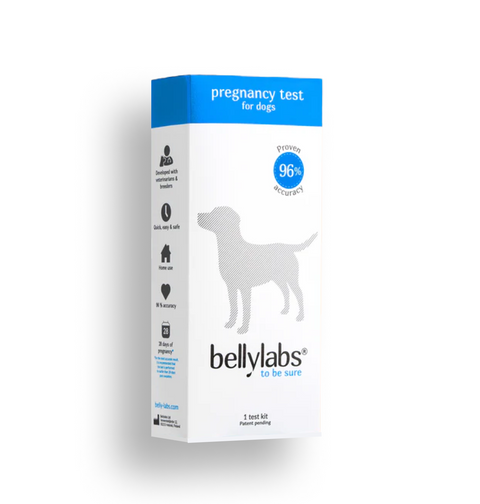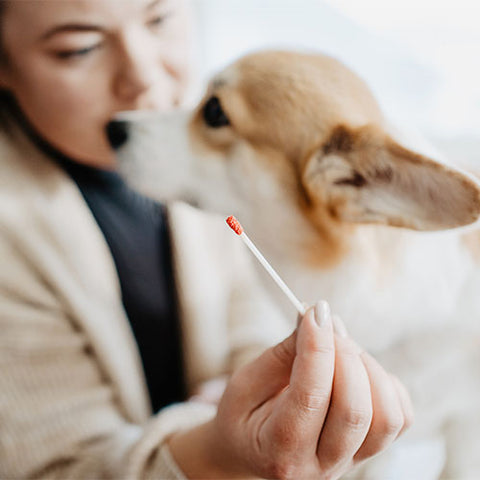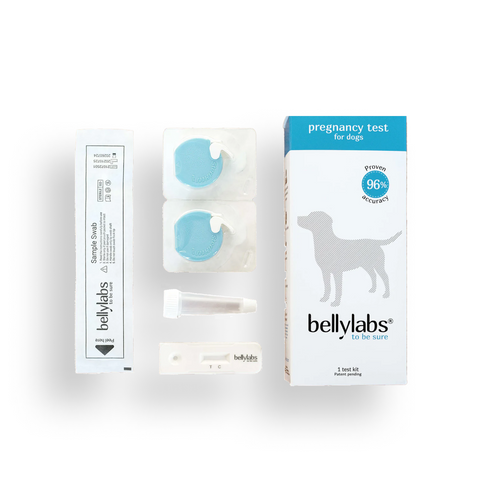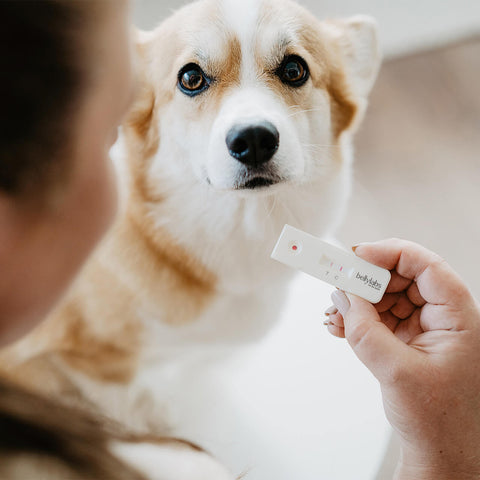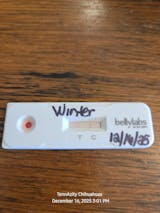Progesterone is a hormone that plays a pivotal role in a female dog's reproductive cycle. The level of progesterone in a dog's bloodstream serves as a reliable indicator of her readiness for mating, conception, and pregnancy. Canine progesterone testing helps breeders determine the optimal time for breeding, increasing the chances of a successful pregnancy and the birth of healthy puppies.
The progesterone test for dogs is particularly crucial for breeders who are striving to achieve planned and controlled matings. The test helps them pinpoint the exact stage of the estrous cycle in the female dog, also known as the "heat" cycle. By identifying the right time to mate, breeders can significantly enhance the odds of a successful breeding, and consequently, a healthy litter of puppies.
The Progesterone Testing Process
Progesterone testing for dogs is a straightforward yet highly informative procedure. It involves measuring the levels of progesterone in a blood sample taken from the female dog. Typically, the blood sample is obtained via venipuncture, which means drawing blood from a vein. The sample is then sent to a specialized laboratory for analysis or run in-house by specialist lab equipment. The results of the analysis indicate the concentration of progesterone in the dog's bloodstream.
Progesterone levels in a female dog vary throughout her estrous cycle, with an increase in the period leading up to ovulation. Ovulation, in dogs, is the release of eggs from the ovaries. The progesterone test helps pinpoint the optimal time for breeding, which is typically when progesterone levels reach a specific threshold, signaling imminent ovulation.
When to Perform a Progesterone Test for Dogs
Timing is everything in canine breeding, and the timing of a progesterone test is crucial. Ideally, breeders should begin progesterone testing no more than a couple of days after the female dog has entered her heat cycle.
It is important to note that the timing of the progesterone test can vary among individual dogs and breeds. Some dogs may have a more predictable cycle, while others may experience irregularities. Therefore, regular progesterone testing may be necessary, especially for breeders who are working with dogs of different breeds or those with less predictable reproductive cycles. Also some female’s cycles vary significantly from one heat to another.
To further refine the timing of the progesterone test, some veterinarians and breeders can combine it with other diagnostic methods, such as vaginal cytology, to monitor changes in the vaginal cells. By using these techniques in conjunction with progesterone testing, breeders can achieve a more precise understanding of their dog's estrous cycle and pinpoint the optimal time for breeding.
The Best Progesterone Tests for Dogs
Selecting the best progesterone test for dogs is a crucial decision for breeders. The accuracy and reliability of the test can directly impact the success of the breeding program. Most breeders choose what is locally available or where they can access the results the quickest.
The selection of the best progesterone test may vary depending on the specific needs of the breeder and the availability of equipment and resources. It is essential to consult with a veterinarian or a reproductive specialist to choose the most suitable progesterone test for your breeding program.
Progesterone levels for breeding:
To achieve a successful pregnancy, it's essential to understand the progesterone levels during a female dog's reproductive cycle. Here's an overview of progesterone levels for dog breeding:
- Baseline Progesterone Levels: In the early stages of a female dog's reproductive cycle (proestrus), her progesterone levels are relatively low, typically below 2 ng/ml. During this phase, she may exhibit behavioral changes, such as increased receptivity to male dogs and bloody discharge, but she is not yet ready for breeding.Levels below 2ng/ml are often referred to as “baseline”.
- Progesterone Rise: As the dog's cycle progresses into the estrus phase, progesterone levels gradually rise. Breeders often begin monitoring progesterone levels when they suspect the female is in estrus. It is typically recommended to start testing when progesterone levels are around 2-3 ng/ml. When levels reach 2-3ng/ml she is usually at Luteinizing hormone or LH-peak. Ovulation on average happens 2 to 3 days after this point.
- Ovulation: The key to successful breeding is to pinpoint the optimal time for mating, which corresponds to the surge in progesterone levels. This surge usually occurs when progesterone levels reach around 5-10 ng/ml. This surge indicates that ovulation is happening, and the female is ready for breeding soon. The exact threshold can vary among individual dogs, so regular progesterone testing is essential. If ovulation has been complete, you should witness a rise of at least 4 units by the next day. Canines ovulate immature eggs that are ready to be fertilized 2 to 3 days after ovulation.
- Post-Ovulation: After ovulation, progesterone levels continue to rise, peaking at around 30-50 ng/ml. At this stage, the female is no longer fertile, and breeding is less likely to result in a successful pregnancy.
- Pregnancy Confirmation: If breeding is successful, progesterone levels will remain elevated during pregnancy. Progesterone dropping below 2ng/ml indicates whelping within the next 24 hours. Pregnancy can be confirmed with a home pregnancy test after 28 days or more have passed from ovulation.
Progesterone testing for dogs is an invaluable tool in the world of canine breeding. By accurately assessing the levels of this essential hormone, breeders can pinpoint the optimal time for mating, leading to a higher likelihood of successful pregnancies and the birth of healthy puppies. It is also a valuable to to determine when a bitch is ready to give birth.
Choosing the best progesterone test for dogs is a decision that can significantly impact the success of a breeding program. The accuracy and reliability of the test are paramount, and various options are available to meet the specific needs of breeders. When combined with other diagnostic methods and the guidance of a veterinarian or reproductive specialist, progesterone testing becomes a vital tool for ensuring the well-being of both the mother and her future puppies. Breeders who invest in progesterone testing are investing in the future of their breeding programs, ensuring that they produce healthy, happy, and well-cared-for puppies for years to come.





